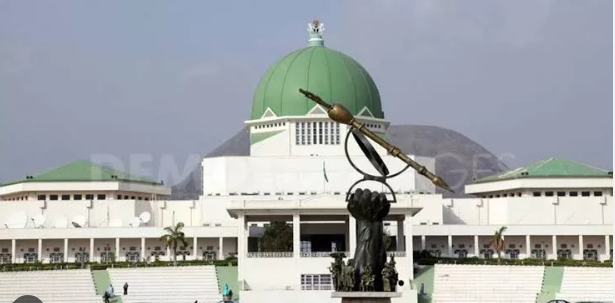The National Assembly has announced that it will transmit the report of the ongoing constitutional review to all 36 state assemblies by December 2025, in accordance with its established schedule and framework.

The Nigerian National Assembly complex in Abuja, where critical decisions on constitutional amendments and national legislation are made.
Speaking at the conclusion of a two-day zonal public hearing in Lagos, the Leader of the Senate and Zonal Chairman of the Senate Committee on the Review of the 1999 Constitution, Senator Opeyemi Bamidele, emphasized that the National Assembly cannot amend the 1999 Constitution without the active collaboration and approval of state legislatures.
According to Bamidele, since the start of constitutional amendments in the Fourth Republic, issues like devolution of powers, local government autonomy, state police, and the creation of new states have consistently taken center stage in public hearings. He reiterated that while the National Assembly plays a central role in drafting and processing constitutional proposals, ultimate success hinges on the approval of at least two-thirds of the state assemblies.
He urged citizens and stakeholders with special requests to take their advocacy to the grassroots level by lobbying their respective state assemblies. “There is nothing the National Assembly can do without a two-thirds majority approval of state assemblies,” Bamidele stated. “This process requires collective effort. Stakeholders must work closely with their state lawmakers to ensure that their proposals receive the needed backing.”
Bamidele noted that the public hearings were not a symbolic exercise but a serious effort to implement meaningful constitutional reforms aimed at improving governance, promoting sustainable development, and securing national prosperity. He assured the public that the National Assembly would process all received proposals and forward them to the state legislatures in due course.
He added, “The National Assembly has listened to the yearnings of citizens across geopolitical zones. We are optimistic that the state assemblies, being part of this process, are prepared to receive the report and act accordingly.”
READ ALSO: Bola Ahmed Tinubu Receives South-South APC Endorsement for 2027 Re-Election
Also speaking at the hearing, Chairman of the Conference of Speakers of State Legislatures and Speaker of the Oyo State House of Assembly, Debo Ogundoyin—represented by Deputy Speaker Rt. Hon. Abiodun Fadeyi—called for more powers to be devolved to the subnational governments. He advocated for shared legislative authority between the federal and state governments on critical issues such as solid minerals, labor, drugs, telecommunications, and stamp duties.
Ogundoyin emphasized the positive impact of the recent removal of electricity from the Exclusive Legislative List, noting how it has empowered states to develop independent power initiatives. He further supported the establishment of state police, highlighting its potential to boost local security, enhance accountability, and create employment opportunities.
He said that the constitutional amendment should clearly define the responsibilities and oversight of state police to prevent abuse, and create a framework that allows both federal and state police forces to operate in harmony.
In conclusion, the National Assembly reiterated that constitutional reform is a shared responsibility and urged all citizens, civil society groups, and interest holders to actively engage their state assemblies to make their voices heard in shaping Nigeria’s constitutional future.


